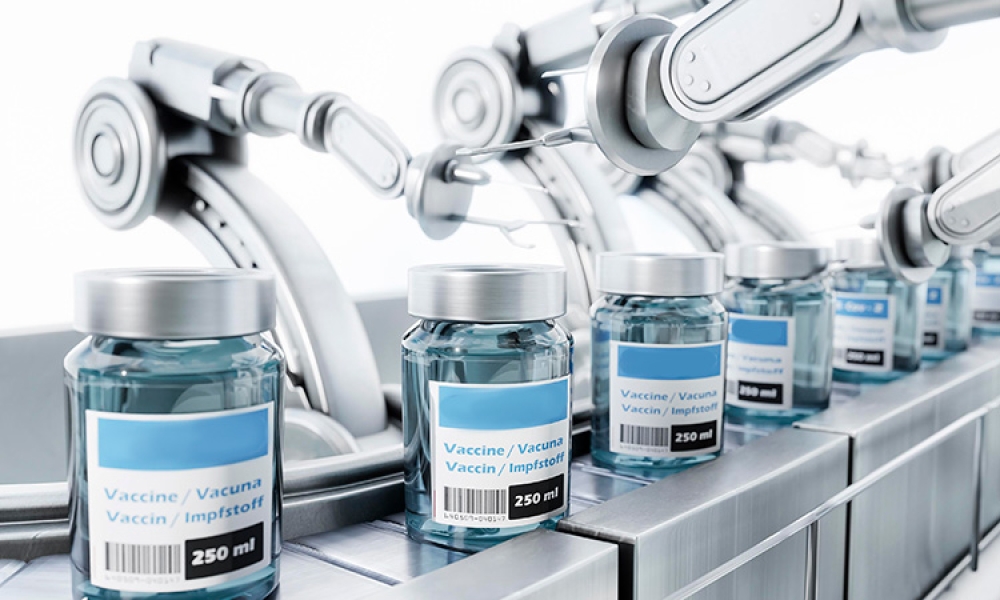AI and ML are emerging as powerful enablers across the biopharma value chain, helping to make sense of data, streamline operations, and create smarter, more flexible manufacturing environments.
That’s why the “Accelerating Biopharma with AI and ML” track at this year’s 2025 ISPE Biotechnology Conference focuses entirely on this critical theme.
This track is designed to take attendees on a journey—starting with what’s possible today, outlining what organizations need to prepare for successful adoption, and looking out into the not-so-distant future to explore where AI and ML can lead the industry next.

*Restrictions apply. Offer applies to In-Person All Access Pass member/non-member rates only. Offer ends at 2359 EST on Friday, 2 May 2025.
Moving From Possibility to Practice
The “Accelerating Biopharma with AI and ML” track brings together industry experts to share real-world case studies, lessons learned, and practical insights that demonstrate how AI and ML are already reshaping the biopharma landscape.
“Cognitive Laboratory: Leveraging AI to Decode Biopharma”
Srividya Narayanan with Northeastern University will set the stage by showcasing how AI and ML are transforming each stage of the pharmaceutical value chain, from accelerating drug discovery to optimizing manufacturing and enhancing supply chain operations. Attendees will gain insights into AI-driven compound screening, ML-powered clinical trial optimization, smart manufacturing systems, and supply chain efficiencies. The session will also address critical challenges such as data quality, regulatory compliance, and legacy system integration.
“Enabling AI and ML with a Data Centric Architecture”
Building a strong digital foundation is essential for AI and ML adoption. Matthias Kress with BioGrasp GmbH and James Sunna with Theos-CES GmbH will explore how data-centric architecture provides the backbone for integrating AI across manufacturing environments. Through a proof-of-concept demonstration, they will illustrate how connecting lab, office, and shop floor data enables real-time process control, improves efficiency, and supports a Quality by Design approach. Their insights stem from active contributions to ISPE's Pharma 4.0™ Plug and Produce Architecture workstream.
“From Reactive to Proactive: Leveraging AI/ML to Improve the Quality Unit”
AI and ML are not just transforming operations; they’re reshaping quality management. Michael de la Torre with Redica Systems will highlight how organizations can evolve their Quality Units from reactive to proactive by using advanced analytics and machine learning. This session will examine how predictive insights can improve decision-making, reduce quality incidents, and create a more agile and resilient quality culture.
Driving Smarter Process Monitoring and Control
AI and ML are also playing a pivotal role in revolutionizing process verification, control strategies, and real-time release. The following track sessions focus on this topic.
“How AI Enables True Continued Process Verification (CPV) for Real-Time Release”
Right after a short afternoon break on Monday, 2 June of the 2025 ISPE Biotechnology Conference, Christian Gay with Aizon will examine how AI can augment CPV to enable real-time release (RTR) and continuous manufacturing. Sharing a case study in AI-driven fermentation management, this presentation will demonstrate how AI enhances batch performance, predicts deviations, and enables predictive control, all while ensuring compliance with good manufacturing practice (GMP) standards.
“Cross-Program mRNA Process Models with Interpretable Machine Learning”
As mRNA-based products continue to expand, understanding variability and leveraging predictive insights across programs is key to scaling production while maintaining quality. Gang Wang, PhD, with Moderna will showcase how AI and interpretable machine learning models can support this cross-program process development for mRNA therapeutics as part of the track.
“Autonomous AI – Building AI for Control and Advisory”
Chris Conry with RoviSys will close the track with a look into the future of autonomous AI in manufacturing. With an aging workforce and valuable operational knowledge at risk, RoviSys is applying reinforcement learning to capture expert knowledge and create AI agents capable of guiding less experienced operators. This presentation will detail how simulated environments train these agents to perform complex tasks, ranging from plant-wide scheduling to managing individual unit operations.
Preparing for What’s Next
Together, these sessions illustrate that the future of biopharma is closer than we might think. However, success with AI and ML requires more than just technology, it demands readiness across data, systems, people, and processes.
The “Accelerating Biopharma with AI and ML” track will provide attendees with:
- A clear view of today’s AI/ML applications in biopharma
- A practical understanding of what’s required for successful implementation
- A forward-looking perspective on emerging trends and possibilities
Whether an organization is just beginning its digital journey or actively scaling AI and ML initiatives, this track offers invaluable insights into how to move from proof-of-concept to production-ready, all while navigating regulatory, technical, and operational challenges.
AI and ML are not just tools of the future — they are driving real change in biopharma today. Join ISPE at the 2025 ISPE Biotechnology Conference to explore what’s possible, what’s required, and what’s next.
Learn More and Register







